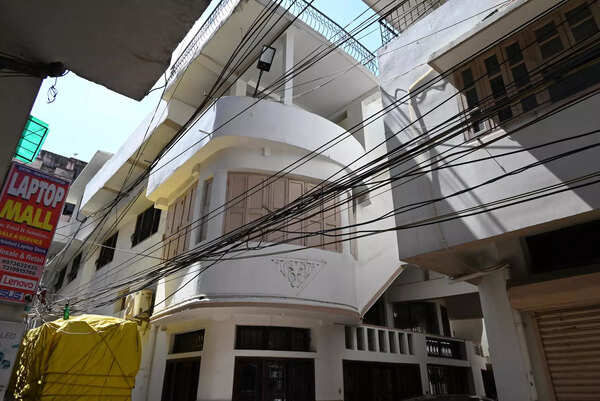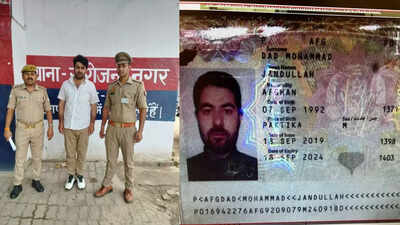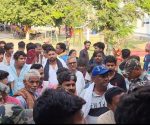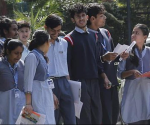Afghan jalebi: How a Patna building became hotbed for immigrants with multiple voter IDs | Patna News – Times of India

An Afghan National’s Arrest At Lko Airport On May 22 Has Led Intel Sleuths To A Sophisticated Racket Of Forged IDs, Illegal Stay & Activities
PATNA: Just five-minute walk from the bustling Patna Junction, stands an unassuming two-storey building painted ivory white. Known locally as Wakil Anwer House, this structure tucked in the congested lane off Jamal Road under Kotwali jurisdiction is home to about two dozen rooms.

To the casual observer, it’s just another residential building in Bihar’s capital. But to the Election Commission of India (ECI) and intelligence agencies, it’s a curious anomaly—a hub of questionable identities, with electoral rolls showing eerie duplications of names, ages, and fathers’ identities.On May 22, the Chaudhary Charan Singh International Airport (CCSIA) in Lucknow, some 500 km away, became the stage for a dramatic arrest. Jandullah Dad Mohammad, a 29-year-old Afghan national from the volatile Paktika province, was arrested by Bureau of Immigration (BoI) sleuths. He wasn’t traveling as Jandullah. Instead, he carried an impeccable suite of Indian identity documents under the alias Rehan, son of Kabir, claiming residency at Wakil Anwer House. His Indian passport (C6978659), Aadhaar card (322874855132), PAN card (ETXPR8222K), driving license (BR0120210005369), SBI bank passbook, municipal corporation Patna issued birth certificate (B-2019 10-90097 025254), voter ID and even a ration card painted a convincing picture of an Indian citizen. But a junior immigration officer’s routine verbal check unraveled the façade.“Aap Patna ke hain? Kahaan se hain wahan?” the officer asked. Rehan’s Pashto accent, a remnant of his roots in Paktika—a rugged region bordering Pakistan’s Khyber Pakhtunkhwa and Balochistan—betrayed him. He fumbled basic questions about Patna, a city he claimed as home. His tone was “all wrong,” the officer.Among his possessions, the BoI recovered an Afghan passport (P01694227) identifying him as Jandullah Dad Mohammad and an expired Indian medical visa (VL2796501) from December 2019. The discovery of $1,600 USD, 3,000 UAE Dirham, Rs 21,000, a UAE visa, hotel bookings, and three mobile phones—including a gleaming iPhone 16 Pro—only deepened the mystery.To the untrained eye, he was just a Bihari heading to Sharjah for work or leisure. But Jandullah’s journey from Paktika to Patna to Lucknow’s airport has left authorities scrambling to piece together a complex puzzle.
A house of suspect identities
The ECI’s consolidated electoral list, published on January 7, 2025, under a special summary revision, revealed startling details about Wakil Anwer House. Located in the Bankipur assembly constituency and Patna Sahib parliamentary constituency, the building is listed under part name 147, Rajkiye Kanya Uchcha Vidyalay Dakbangla Road (Purvi Bhaag).The list records 12 male occupants, all in their 20s and 30s except one, with no women registered. Alarmingly, at least four of them—including Jandullah’s supposed brother Mansur—shared identical details: same age, same father’s name (Kabir), and multiple Electoral Photo Identity Cards (EPICs). Rehan’s EPIC (AFS3853934) lists him as 29, son of Kabir. Mansur, 30, son of Kabir, holds two EPICs (AFS4130290 and AFS4127999). Mohammad Sher Khan, 43, son of Mohammad Abbas Khan, also has two EPICs (AFS4129953 and AFS4125266).Other occupants include Imtiyaz Khan (25), Salim (26), Eshan Khan (26), Abdul Rehman Khan (24), Iqbal Khan (23), Shafi Khan (22), and Sharo Khan (22).Speaking to TOI, electoral registration officer (ERO) Raghvendra Pratap Singh revealed that investigations pointed to irregularities. “During our investigation, we were told by the occupants of Wakil Anwer House that Rehan had come to Patna some five years ago. His supposed brother Mansur left for Dubai six months ago, and there is no information about their father, Kabir,” ERO said.Jandullah’s real father, Dad Mohammad Khan, suggests the name ‘Kabir’ was part of the fabricated identity. An Indian passport (U2145507) of Kabir was issued on Feb 4, 2020, however a death certificate of his ‘supposed’ wife, designates him late Kabir. The deceased woman was identified as Bibi Danagai, who died on September 9, 2018. However, in Kabir’s passport his wife’s name is Bibi Dano, while in the birth certificate of Rehan’s, Kabir’s wife’s name was mentioned as Bibi Aisha.Meanwhile, the ERO has ordered the cancellation of Mansur’s and Mohammad Sher Khan’s duplicate EPICs, noting, “One individual cannot have two EPICs.”The remaining occupants claim their ancestors have lived in India for decades, working as daily wage earners selling dry fruits, carpets, sarees, bangles, and shawls. Singh has demanded their documents for verification to ascertain their nationality.
Legacy of Afghan migration
Wakil Anwer House’s history adds another layer to the story. Syed Akbar Ahmad, one of the property’s owners, spoke to the TOI team about its long-standing Afghan connection. “Rehan’s father came from Afghanistan many years back. Five years ago, his son Rehan came, but I don’t have any idea about their whereabouts anymore,” Ahmad said.He said, “It never came to our mind for the rent agreement or the police verification of the Afghans as they were living for several years. However, the new occupants now sign a rent agreement and have to follow the police verifications.”He further claimed that Afghan tenants have resided on his property for over 70 years, with some families dating back to their grandfathers’ time. “The tenants who started living on my property several decades back have never left or been replaced,” he added.Shayab Khan, a tenant in his early 50s, echoed this sentiment. “My grandfather migrated to Patna around 70–80 years ago,” he told The Times of India. “I have all identity proofs as a resident of India, including an Aadhaar card, voter card, driving license, and other documents. I have voted in both assembly and parliamentary elections at least 15 times since I became an eligible voter.”Khan’s claim aligns with the historical migration of Pashtuns from Afghanistan to India, particularly before 1947, when many settled in cities like Patna to engage in trade.
Web of forgery
Jandullah’s case points to a sophisticated document racket likely operating out of Patna. After entering India on a six-day medical visa in December 2019, he vanished from Delhi’s radar. By 2020, he had acquired a full suite of fake Indian IDs, passing himself off as Rehan from Kotwali Patna.Authorities suspect a local network facilitated this transformation, providing everything from Aadhaar to voter IDs. The BoI’s seizure of his documents has triggered a broader investigation into Wakil Anwer House and its occupants.“We have asked the house owner to bring all related documents, including the rent agreement, to aid the investigation,” ERO Raghvendra Pratap Singh said.“The case raises pressing questions: Who provided Jandullah with these forged identities? How did he and others secure multiple EPICs? What did he do for a living during his five years in Patna? And who else at Wakil Anwer House might be living under false pretences?,” said an intelligence officer.At least the ECI is working on the ground to verify the identities of all occupants, a process complicated by the lack of women in the electoral list.
Broader context
Jandullah’s arrest comes amid heightened scrutiny of immigration and citizenship in India. The Citizenship (Amendment) Act, 2019 (CAA), offers a pathway for Afghan nationals of certain religious communities (Hindus, Sikhs, Buddhists, Jains, Parsis, and Christians) who entered India before December 31, 2014, to apply for citizenship.However, Jandullah, whose religion remains unspecified in reports, appears to have bypassed legal routes, opting for forged documents instead. For Afghan nationals who settled in India before 1947, like some occupants of Wakil Anwer House claim, citizenship may be attainable through registration under Section 5 of the Citizenship Act, 1955, or the CAA if they belong to eligible communities. Yet, Jandullah’s attempt to flee to Sharjah suggests a different motive—perhaps evading scrutiny or seeking opportunities abroad under a false identity.Though his e-visa copy read that Jandullah alias Rehan identified himself as a sales representative and was heading UAE for 30 days on tourist visa.
















